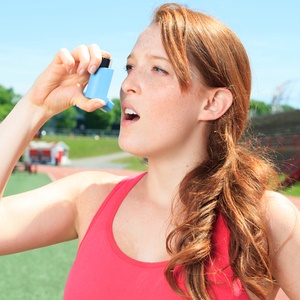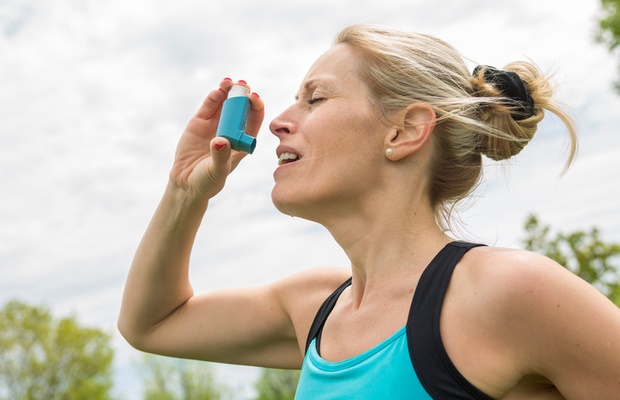
Allergies and asthma can make exercise more challenging. But if your condition is well managed and you take a few precautions, you should be able to work out without worry.
There is no reason why you should avoid exercise when suffering from asthma or allergies. While some sports are more likely to trigger your symptoms than others, it's important to know what exercise is the right type for you and to get cleared by your doctor when starting a new regime.
1. Identify the triggers
Know your allergy or asthma triggers and exercise around them. For instance, when the pollen count is high, exercise indoors with windows and doors closed. When you do exercise outside, avoid high-allergen areas like grassy fields, parks and heavily trafficked roads.

2. Be mindful of the outdoors
Dry air can be particularly irritating to people with asthma while moist air often makes exercise easier. That might mean skipping endurance activities like cross-country skiing in favor of swimming in an indoor pool. When exercising outdoors, breathe through your nose rather than your mouth as much as possible – nasal passages filter air and trap allergens and irritants.

3. Choose the right workout
Long-distance running and high-energy basketball are among the types of exercise more likely to cause exercise-induced asthma, or what's now called exercise-induced bronchoconstriction, or EIB. Most people with asthma experience it when airways are narrowed from exertion, according to the American College of Allergy, Asthma & Immunology. There are many other exercises that is less likely to induce an asthma attack such as yoga, Pilates, or even light walking.

4. Consult your doctor
Talk to your doctor about a regimen of bronchodilators that may help prevent EIB, allowing you to exercise with less fear of an attack. Also, a 15-minute warm-up and a 15-minute cool-down may prevent or limit the severity of exercise-induced asthma.

5. Always have your medication on hand
Never leave your home without your medications, such as a rescue inhaler or, if you're allergic to insect stings, an epinephrine auto-injector.

6. Don't be a hero
Be sure to postpone your workout any time your symptoms aren't well controlled or when you're sick. Don't exercise through severe symptoms or when you are not feeling well, as this can make the onset of an asthma attack worse.

Image credits: iStock




 Publications
Publications
 Partners
Partners











